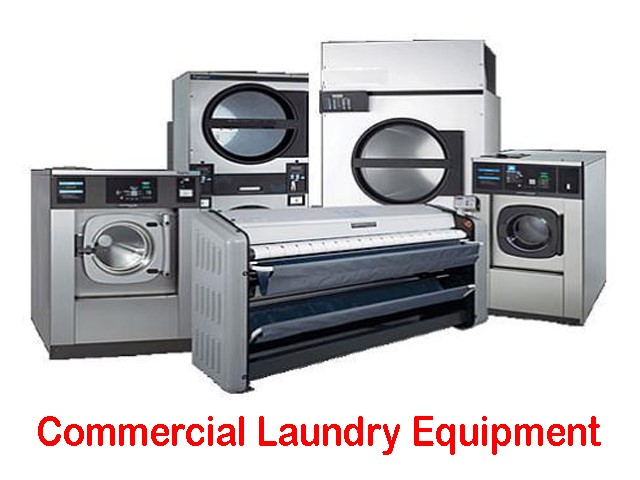Commercial Laundry Equipment Buying Guide
 For every business, there must be meticulous planning all round, from the equipment to the personnel. If you want to establish a laundry business, some tools must be present in your shop at all costs. In the world of laundromats, the outcome of your hard work rests upon the purchase and preservation of your equipment. According to RichardJay.com.au, this article will help you make all the right decisions as you start your laundry business.
For every business, there must be meticulous planning all round, from the equipment to the personnel. If you want to establish a laundry business, some tools must be present in your shop at all costs. In the world of laundromats, the outcome of your hard work rests upon the purchase and preservation of your equipment. According to RichardJay.com.au, this article will help you make all the right decisions as you start your laundry business.
Here is a list of essential tips to start with:
1. Your requirements will determine the kind of washer you need.
2. The cost of the equipment is also a crucial factor to consider
3. Before any purchase, you must research as many available options as possible. The more alternative products, the easier it will be for you to improvise, depending on your budget.
4. How sturdy is the washer? You must know the durability of your chosen brand before buying it.
5. Check out the expenses of the maintenance of the equipment. Also, are the spare parts of the brand easily procurable?
6. Your Laundromat room will determine the size of the equipment.
7. Check if the tools are user-friendly.
8. Go for the brand that has a commendable reputation and offers WARRANTY.
9. Washers are not tools that you can keep around once you are no longer interested in the business. Therefore, ensure that the ones you buy have second-hand value.
The capacity of the load per washer
Generally, the conventional washing machine that measures from 3.1-4.0 cubic feet can accommodate 12-16 pounds of clothes. For appliances with more massive proportions of about 4.2-4.5 cubic feet, they would effortlessly hold 20 pounds or more. Also, there are mega-capacity washers that measure above 4.6 cubic feet.
Card vs. Coin-operated machines
Card-operated machines have the advantage of excellent comfort ability, and they are more secure than their coin-operated counterparts. They also allow you to easily monitor your business by automatically recording cash flow online. The most significant downside is that the installation of a card reader system is expensive.
Coin-operated laundry machines are standard in most Laundromat establishments. The drawback of this payment option is that it is susceptible to theft, meaning the locks can be picked. Even more, there is the possibility of customers devising ways to acquire wash cycles without paying first. With coin-operated machines, you have to make provisions for one or two change machines.
Power
In a bid to make life easier, we recommend that you purchase a washing machine that has the “Energy Star” stamp. It is a routine procedure conducted by EPA to classify appliances that are energy efficient. This kind of washer would save you from a pile of electricity utility bills in the distant future.
Factors to consider before purchasing a washer
There are two significant types of washing machines. The following information will help you decide on your preference:
1. Front Loading Machine
Merits:
● It automatically measures the amount of water that balances your laundry and saves about 50% of your water usage per cycle
● In the absence of an agitator, front load machines have a lower potential of tearing the fabric
● Since they can be stacked, you can save space in your laundry room.
Demerits:
● They have an immense initial cost
● They are time-consuming, as one wash and rinse can take over thirty minutes to complete.
2. Top Loading Machine
Merits:
● Low initial costs
● Quicker wash and rinse cycles
● The advantage of adding clothes during a period
● Time-saving
Demerits:
● Requires more water and energy per cycle
● Has low capacity compared to front-load machines
● It preserves water which wets clothes and prolongs the drying process
● Because of the central agitator, top load washers can cause mild materials to be attrited.
Factors to consider before purchasing a dryer
1. Gas vs. Electric Dryers
Gas dryers need a gas line connected to your Laundromat room, while the standard electric dryer requires a 240-volt outlet.
The installation of a gas line is usually costly, and it can be hazardous if the connection is not correctly established. The reason various Laundromats prefer electric dryers is because a gas line is mostly not readily available.
2. Load Capacity for Dryers
The typical capacity of the dryer should be approximately twice the capacity of the washer. Therefore, clothes will have adequate room to dry. There are two major kinds of dryers:
● Full-size dryers: 5.5 to 7 cubic feet
● Mega-capacity dryers: as high as 9.2 cubic feet.
Other equipment that you require to run your laundry business successfully includes:
● Laundry Sterilizing Machine
● Pressing Table
● Large Containers
● Water Heater
● Cloth Rack and Hangers
● Hand Dryer
● Industrial Pressing Iron
● Laundry Baskets.
In conclusion
Hopefully, this article has been helpful in your decision-making process. By implementing the tips, you can save cost and still get the best deals during the purchases.

 Delicious
Delicious Digg
Digg StumbleUpon
StumbleUpon Propeller
Propeller Reddit
Reddit Magnoliacom
Magnoliacom Newsvine
Newsvine
Comments
Post new comment